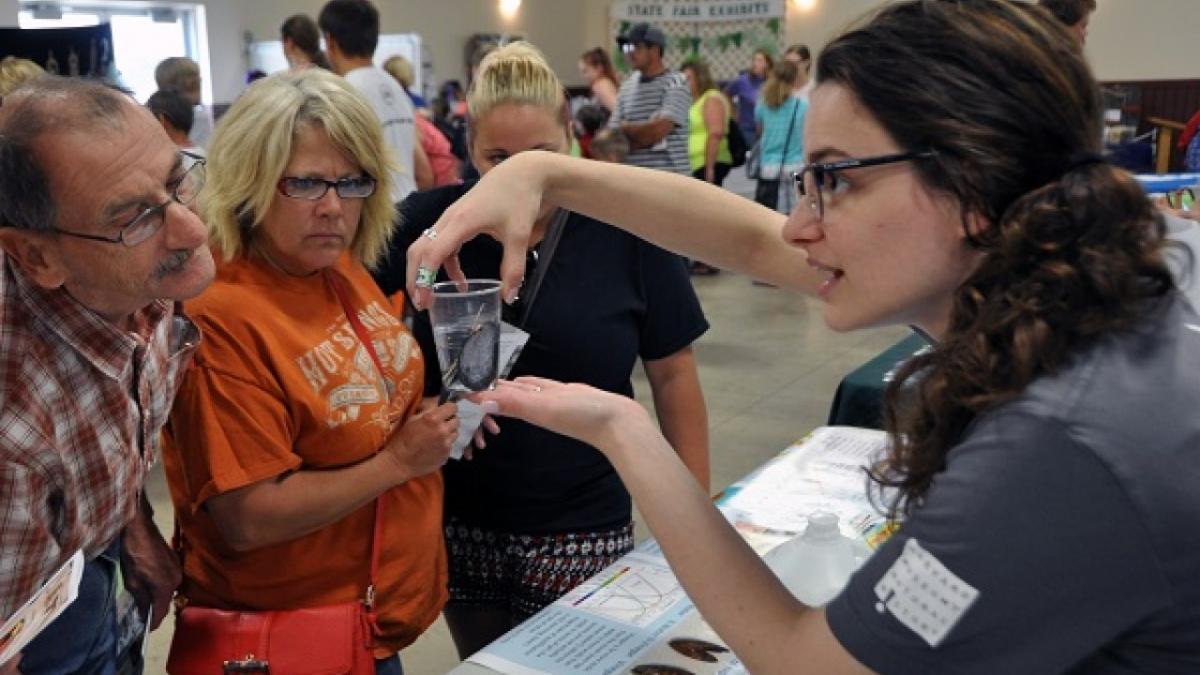
NCSE's Science Booster Club program was featured in a story from ThinkProgress (August 24, 2017), which described it as "a way of bringing the science behind climate change and evolution to regular citizens."
"The booster club uses volunteers — often scientists, though anyone can get involved — who go to local farmers markets, state fairs, science festivals, city council meetings, and other community events and set up booths with hands-on science experiments."
NCSE's Emily Schoerning, who heads the program, emphasized its non-confrontational and easy-going approach: "you don't act like you’re doing missionary work... your job is helping people work through some evidence and helping people process their conclusions."
Penn State climate scientist Michael E. Mann commented, "I've long said that the solution to the climate problem is going to come as much from the ground up as from the top down," adding, "The more involved people can get at the community level, the better."
A further benefit of the program is that it helps to create a friendlier environment for teachers to present evolution and climate change in their classrooms, especially important given the sporadic assaults from legislators and policymakers.
There are currently Science Booster Clubs in Iowa, where it was piloted, and California, Indiana, Kentucky, Nebraska, Ohio, Oklahoma, Texas, and Virginia; applications to start a further four clubs are currently under review.
